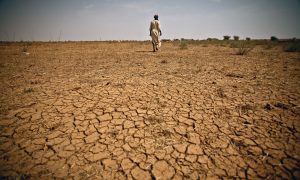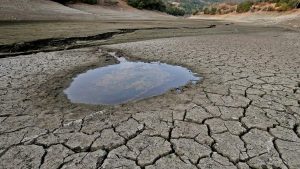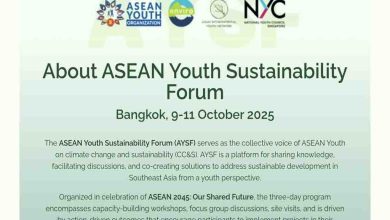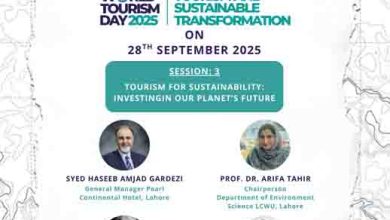THE NEWS, June 02, 2022
The people of Pakistan, particularly those in southern Punjab, Sindh and Balochistan, are facing the worst kind of water crisis. Electronic and social media are inundated with images of disease-ridden children, dry agricultural land, wrecked crops and carcasses of livestock.
Research suggests that 85 per cent of people in Balochistan have no access to clean water. A few days ago, after consuming polluted water, scores were infected with cholera leading to the death of at least a dozen in Dera Bugti.

The groundwater situation in Pakistan is also alarming, having tumbled down to frightening levels. Pakistan ranks 14 among the 17 countries that are deemed extremely high water-risk regions in the world. Experts say Pakistan may become the most water-stressed nation in the region by 2040.
In the Platonic dialogue, ‘Crito’, Socrates makes a profoundly convincing argument as to why he must stay in prison and not escape. While informally alluding to the social contract theory, he says that his mind, intellect and personality developed owing to opportunities afforded to him by the state – and so he owes a duty to respect the decrees of the state. Centuries later, with slight augmentations, the social contract theory was given its formal exposition by Thomas Hobbes, John Locke and Jean-Jacques.
In its contemporary form, the social contract theory says that people stirred by self-preservation enter into a social contract to create a body politic. The said body politic is obligated to protect the rights of the people on the premise that in return the people will obey its commands. Accordingly, the body politic is duty-bound to provide the people with security, safety and well-being in return for minimal restrictions on their rights.
The constitution of Pakistan in essence is a social contract amongst the citizens. It is the supreme law of the land, envisages the fundamental rights of the citizens and imposes a corresponding duty on state institutions to preserve and advance them.
In view of our various constitutional provisions and binding judgments of the Supreme Court of Pakistan, the state is under a legal compulsion to ensure availability of clean water to its citizens, for drinking as well as other necessary purposes. The apex court has held in various rulings that availability of water and keeping the environment free from pollution is part of the fundamental right to life guaranteed under Article 9 of the constitution.
Supreme Court Justice Mansoor Ali Shah has recently passed a momentous verdict explicating the nexus between climate justice and water justice. Justice Shah has held that water resources are intricately linked with the climate; this is why climate change has such serious repercussions for Pakistan’s water resource. The state should exercise control over all water resources, and protect them for the benefit of current and coming generations. Justice Shah, while being judge of Lahore High Court, had held in the Asghar Laghari Case that water justice is a subset of climate justice, and right to life and right to human dignity under Articles 9 & 14 are facets of water justice. He added that water justice demands that all communities are able to access water for beneficial uses, including drinking, waste removal, cultural and spiritual practices.
The doctrine of public trust developed by the ancient Roman Empire was recognized by the Supreme Court of Pakistan in the Canal Widening Case 2009, and is, so, part and parcel of our legal regime. The doctrine is founded on the idea that certain common resources such as rivers, seashores, forests and the air are held by the state in trusteeship for free and unrestricted use by the general public which is the ultimate beneficiary. Thus, under the public trust doctrine, the state as a trustee is under a legal duty to shield the natural resources and hold it as a trust for our present and future generations. Accordingly, the state is the trustee of water resources and the public is the beneficiary. While elucidating the public trust doctrine, the California Supreme Court in the Mono Lake Case held “It is an affirmation of the duty of the state to protect the people’s common heritage of streams, lakes, marshlands and tidelands”. So, the state of Pakistan has a positive duty to take affirmative action in order to preserve natural resources like water.
The perfect way to address the adverse effects of climate change in order to preserve water resources is adoption of mitigation measures: like reduction in emission of GreenHouse Gases (GHG). Inopportunely, between 1994 and 2015, the overall increase in the emissions has been over 120 per cent in Pakistan. The Paris Agreement 2015, to which Pakistan is also a signatory, holds that each state is obligated to introduce mitigation measures to address and mitigate climate change. Pakistan’s statement to the United Nations Framework Convention on Climate Change in 2016 promises a reduction of 20 per cent in GHG emissions till 2030.
Despite the fact that the energy sector contributes 47 per cent to GHG emissions, successive governments failed to focus on renewable sources of energy. Infact, the PTI-led government instead of encouraging cheaper and eco-friendly renewable energy projects, imposed a 17 per cent general sales tax on solar panels. Such lassitude in relation to implementation of renewable energy power projects is a patent violation of our international commitments.
Countries have invented intriguingly novel ways to cope with climate change. Recently, Athens (Greece) appointed a chief heat officer tasked with giving one of the world’s most ancient cities an inhabitable future. Unknown to many, some innovation also exists in Lahore. Pursuant to an order passed by Justice Shahid Karim, a Judicial Water Commission was established in 2018. Courtesy the terrific performance of the commission, as per WASA the groundwater level in Lahore didn’t change from 2018 till 2021 – meaning: there has been no additional depletion.
In Pakistan, most of the work done with respect to climate and water justice is a consequence of judicial interventions; nevertheless, the same is not a viable and permanent solution. The seriousness of the state to fight a war against this looming crisis is a matter of grave concern. We saw how the recent forest fires in Sherani went on for days and the government seemed incapable of tackling them. In the end, Iran provided us with an especially modified aircraft for the firefighting operations.
The state needs to wake up from its deep slumber. The brazen violation of the fundamental rights to life, dignity and property triggered by the current water crisis reflects a breakdown in our social contract. The state cannot function under such a constitutional collapse. Like Socrates, citizens are bound to remain law abiding as long as the reciprocal arrangement under the social contract is effective. But the said contract will frustrate, breed contempt and lose its legitimacy if the reciprocity is not maintained.
The writer is a Lahore-based advocate of the high court.







